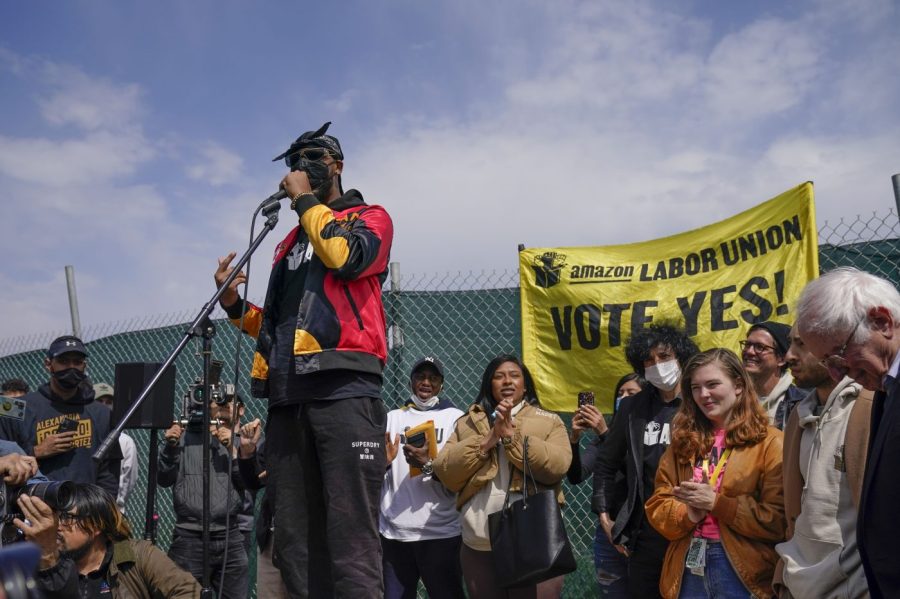
Last week, Amazon made a stunning decision to shutter its operations in Quebec, laying off approximately 2,000 workers. The reason? Workers at the company’s facilities in the Canadian province had just unionized.
This move — clear and brazen retaliation against organized labor — has reverberated beyond Canada’s borders. It’s not just a story about Quebec, Amazon or the 2,000 workers who now face sudden unemployment. It’s a global story — one with significant implications for the U.S. and the broader fight for workers’ rights.
In the U.S., where Amazon employs hundreds of thousands of workers, unionization efforts have been met with fierce resistance. That’s why the story out of Quebec is so significant. Amazon’s decision to end operations there wasn’t subtle. It sends an unmistakable message: if you unionize, we’ll leave.
Amazon has underscored one of the biggest challenges facing organized labor in both Canada and the U.S.: the imbalance of power between workers and multibillion-dollar corporations. Amazon has the resources to shutter its facilities, redirect operations elsewhere, and absorb the financial hit, all in the name of avoiding unionization.
This is particularly relevant in the U.S., where union efforts have been growing but remain precarious. In recent years, we’ve seen Amazon workers in Staten Island win a hard-fought battle to unionize, only to face relentless pushback from the company. Across the country, workers in Alabama, California and elsewhere have tried and often failed to unionize, citing aggressive anti-union campaigns from Amazon.
The Quebec closure is a chilling escalation — a signal to U.S. workers that even if they succeed in unionizing, their victory could be pyrrhic if Amazon decides to cut and run.
What happened in Quebec illustrates how multinational corporations like Amazon leverage their global footprint to undermine organized labor. This “divide and conquer” strategy pits regions, countries, even individual facilities against one another. If workers in one location unionize, the company can simply shift operations elsewhere, often to regions with weaker labor protections or lower union density.
For U.S. workers, this is a stark reminder of how vulnerable they are in a globalized economy. Without strong, enforceable labor laws and international solidarity, workers are left playing an unwinnable game against corporations that operate across borders but answer to none.
Amazon’s decision to leave Quebec also raises critical questions about public perception and corporate accountability. Amazon has long cultivated an image as a customer-centric, innovative and forward-thinking company. But actions like this expose the darker side of that narrative. How can a company claim to care about communities when it’s willing to destroy livelihoods over unionization efforts?
In the U.S., public support for unions is at its highest level in decades. A 2022 Gallup poll found that 71 percent of Americans approve of labor unions, and high-profile strikes like have galvanized public sympathy for workers. Amazon’s actions in Quebec provide a stark contrast — a reminder that corporations will go to great lengths to maintain control, even at the expense of workers and communities. This moment presents an opportunity for labor advocates, policymakers and the public to call out Amazon’s hypocrisy and demand better.
The situation in Quebec, as highlighted by the Canadian government’s open letter reply on X, is a wake-up call for the U.S. labor movement. It highlights the need for stronger protections against corporate retaliation and more robust support for workers seeking to unionize. While the National Labor Relations Act offers some protections, it’s clear that current laws are insufficient to address the challenges posed by global corporations like Amazon.
For one, U.S. labor law doesn’t do enough to prevent companies from using the threat of closure as a union-busting tactic. In theory, the National Labor Relations Act prohibits employers from retaliating against workers for union activity. In practice, proving retaliation is an uphill battle, and the penalties are often so minimal that they fail to deter bad behavior. Amazon’s actions underscore the urgent need for reforms that would make it harder for companies to undermine union efforts — whether through closures, outsourcing or other forms of retaliation.
What happened in Quebec also underscores the importance of international solidarity in the labor movement. Amazon operates on a global scale, and its anti-union tactics are similarly far-reaching. Workers in the U.S., Canada, Europe and beyond face many of the same challenges: grueling working conditions, low wages and aggressive union-busting campaigns. To counter this, labor movements need to think and act globally.
Imagine a scenario where workers across multiple countries coordinated their efforts, demanding better conditions and protections simultaneously. This kind of cross-border solidarity could prevent companies like Amazon from playing one region against another. While building this kind of international coalition is no small task, it’s increasingly necessary in a world where corporations operate without regard for national borders.
Amazon’s actions in Quebec set a precedent that other companies will notice and potentially emulate. If Amazon can shut down an entire operation over unionization without facing significant backlash or consequences, what’s to stop other corporations from doing the same? Do we want to live in a world where corporations can hold entire communities hostage? Or do we want to build a society where workers have a real voice, where their contributions are valued, and where companies are held accountable for their actions?
The closure of Amazon’s operations in Quebec is a reminder of the stakes in the fight for workers’ rights. It’s a call to action for policymakers, labor leaders and everyday people to stand up to corporate overreach. In the U.S., this means pushing for stronger labor laws, supporting union efforts and holding companies like Amazon accountable for their actions.
If there’s one lesson to take from this, it’s that solidarity is our strongest weapon against corporate power. Workers in Quebec stood up to one of the world’s most powerful companies, and while they paid a steep price, the collective fight against Amazon isn’t over.
Aron Solomon is the chief strategy officer for Amplify. He has taught entrepreneurship at McGill University and the University of Pennsylvania.









